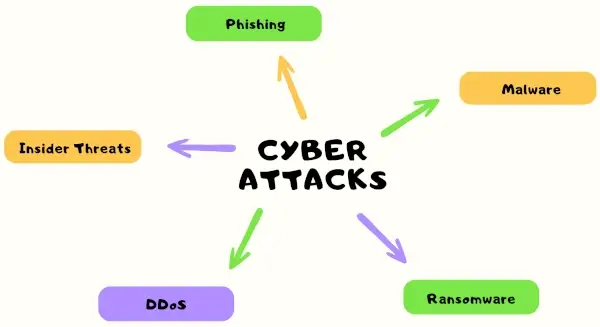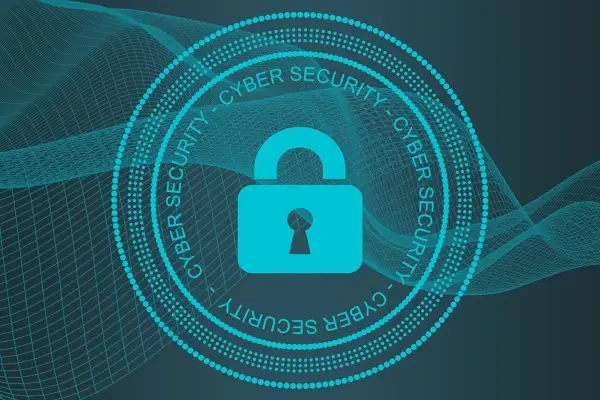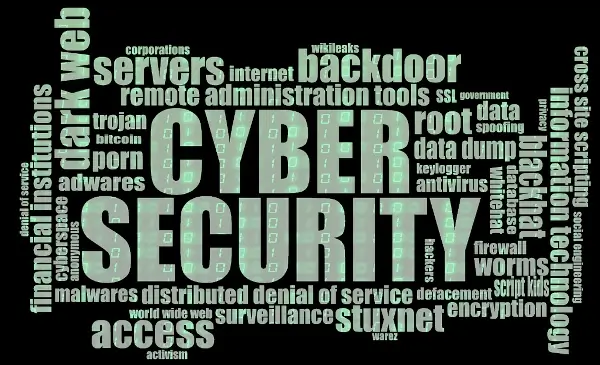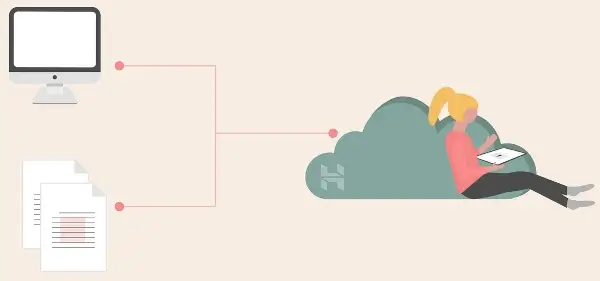
According to a 2021 report by Verizon, almost half of all cyberattacks target businesses with under 1,000 employees. This figure is steadily rising as small businesses seem to be an easy target for cybercriminals. 61% of SMBs (small and medium-sized businesses) were targeted in 2021. But why are small businesses highly vulnerable to cyberattacks?
We are looking into where the vulnerabilities are and what small businesses can do to protect themselves.
Cyberattacks: A Quick Overview
Small businesses handle as much data and sensitive information as larger companies. They store employee details, take payments, and collect consumer data. But often without the same security measures that big businesses have in place.
They may not have the funds for advanced cybersecurity software. But they must find ways to protect themselves from cybercriminals. An example would be using an HRIS human resource information system, which will securely store employee data.
The Most Common Cyberattacks
- Phishing - Cybercriminals trick people into sharing sensitive data. It could be fake websites that ask for details, email attachments that download malware, or call and text scams.
- Malware - Software downloaded onto a device to steal data. It can often be the result of a phishing scam.
- Ransomware - A type of malware that restricts access to a device until a ransom has been paid.
- Insider threats - Former employees who still have passwords may use sensitive information for their benefit. This could be selling data or using it to set up their own rival company.
- DDoS (Distributed Denial of Service) - DDoS attacks slow or shut down a service, making it unusable—for example, overwhelming a website with requests so it won't load for genuine users.

Among the most vulnerable of the smaller businesses are not-for-profit organizations and charities. Although these attacks occur less, they are often more severe. This is because of their data and links to larger businesses. It is organizations like this that need to make cybersecurity a priority.
Furthermore, small businesses also face the growing threat of impersonation attacks, where cybercriminals pose as legitimate businesses or individuals, often targeting employees with phishing emails or fraudulent communication, thereby exploiting their limited resources and cyber security awareness.
Why are Small Businesses so Vulnerable?
So, what exactly makes smaller businesses more vulnerable to cyberattacks? It could be a lack of funds, resources, or cyber security knowledge. In some cases, SMBs can be an easy link for cybercriminals to gain access to larger businesses.
1. Small Businesses Have Fewer Resources
This is the main reason that cybercriminals see small businesses as easy targets. They don't have the resources to protect themselves. A business doesn't have the budget or time for advanced cyber security in its startup stages. They often have basic antivirus software and basic means to store their data.
Yes, small businesses know that they need to protect sensitive data and keep information secure. But often, without a dedicated IT team, they have no experience doing this on a larger scale. Plus, with other priorities, such as building their business up, SMB owners often forget (or don't have the budget) to upscale their security as their business grows.
2. Cybersecurity May Not Be a Priority
According to a 2022 survey from Digital.com, 51% of small businesses don't have any cyber security measures in place. Over half of these say it is because they believe they're too small to be attacked. So, it seems that security isn't prioritized because they don't see the danger.
For example, a small business has only ten employees. They don't yet have a premise, so all work from home. Immediately, this business is at risk as soon as employees need to share their data remotely. Something as simple as a secure remote access solution would give employees a way to securely access and share each other's information.

3. They are Being Used As a Gateway to Larger Businesses
Small businesses may think, "Why would anyone bother attacking us?" They don't have funds or even large amounts of data to steal. But the answer lies in what businesses they are connected to. They could be the weak entry point to the larger end-target.
This could be a smaller business providing goods or services to larger ones. Large businesses could also act as a sponsor or partner for a small charity. Cybercriminals are looking for any connection that could allow them to enter another business.
As mentioned earlier, not-for-profit organizations are often involved in more severe hacking cases. This is because many charities are linked to larger businesses. These big companies have advanced cybersecurity software that hackers can't break through. But if they find a weak link, they could gain access that way.
One of US history's biggest retail data breaches was in 2013 when millions of Target customers' credit and debit card details were stolen. An HVAC small business was hacked initially, giving the cybercriminal access to more information to access Target's network. This shows the lengths hackers will go to reach their target.
4. Hackers Advance Quicker
Many hackers have access to advanced technology, which they use to gain access to larger businesses. While these businesses can afford to update their software to combat this, it is often not the case for smaller businesses. So hackers who find that big companies are out of reach may decide to focus on the smaller ones.
Yes, small businesses can be a gateway to bigger ones. But in some cases, cybercriminals may decide that targeting many smaller businesses is more profitable for them. But small businesses can defend themselves against these hackers. There are tools designed for smaller businesses, for example, small business payroll software, to keep employee details safe.

5. Small Businesses are Easier to Manipulate
If you have built up your own small business from scratch, you likely have a more personal connection to it. Cybercriminals can exploit this by making you feel vulnerable, so you hand over information or funds.
Small business owners are less experienced in dealing with cyberattacks, such as ransomware, so they are more likely just to pay up to keep their company safe. But this doesn't get rid of the problem. It means these criminals may just keep returning.
Some cybercriminals target domain names. They get access to passwords through phishing or malware and lock business owners out of their domains. They could be stealing them to sell back to the original owner or sell them to others.
One of the best ways to avoid this is to buy your domain name from a trustworthy company that will guarantee your domain name is safe.
6. Small Businesses Are Less Likely to Take Further Action
If small businesses don't have the funds to protect themselves against cyberattacks properly, they don't have the funds to be chasing cybercriminals. With 75% of SMBs saying they couldn't continue operating if they were hit with ransomware, cybercrime could kill your small business.
But this makes small businesses an even bigger target for cybercriminals. Without things like vulnerability monitoring services, many businesses don't know that hackers have hit them until it's too late. Then, the choice is between wasting time and money on finding the hacker or trying to move on and rebuild. Many choose to move on and spend what resources they do have on getting better protected.
What You Can Do to Protect Your Business
Now you understand why small businesses are so vulnerable to cyberattacks, and it may feel like you are fighting a losing battle. But there are things you can do to protect your business from cybercriminals, even with limited resources.
First, you should complete a security assessment of your business. Look at what data and information you store and how you store it. You should also look for any vulnerabilities, such as how you share data.

You also need to make sure that remote workers are protected. For example, remote communication software allows homeworkers to communicate securely and share information without compromising security. Additionally, employing residential proxies can enhance the security measures for remote workers, ensuring their online activities are safeguarded and their privacy is maintained.
The most essential forms of cyber security for all businesses include:
- Password policies
- Multi-factor authentication
- Secure data backup
- Advanced antivirus software
- Enhanced firewall
Another way to protect your small business is to ensure that all networks are secure. Security patches are software that 'patch' vulnerable parts of your system to stop attacks.
Additionally, when selecting and implementing HR software for small businesses, ensure it comes with robust security features and encryption protocols as an essential part of your overall network security strategy.
You should also look at your employee training and knowledge of cyber security. Many small businesses find that internal hiring works best for them as their employees already know the business, and it reduces hiring costs. You could create a cyber-security team within your existing pool of employees.
In Closing
With the number of cyberattacks rising year by year, small businesses are among the most vulnerable. They have less time, resources, and knowledge, which puts them at a disadvantage. Hackers can also target them to gain access to large businesses.
But fighting cyberattacks isn't a lost cause. There are things that small businesses can do to protect themselves from cybercriminals, such as finding their weak spots and securing their data. It is also important that small business owners take the time to learn how they may be targeted so they can prevent it.
Even with limited resources, all business owners, big and small, must protect their employees' and customers' data.


 Copyright 2000-2025, WebSitePulse. All rights reserved.
Copyright 2000-2025, WebSitePulse. All rights reserved.